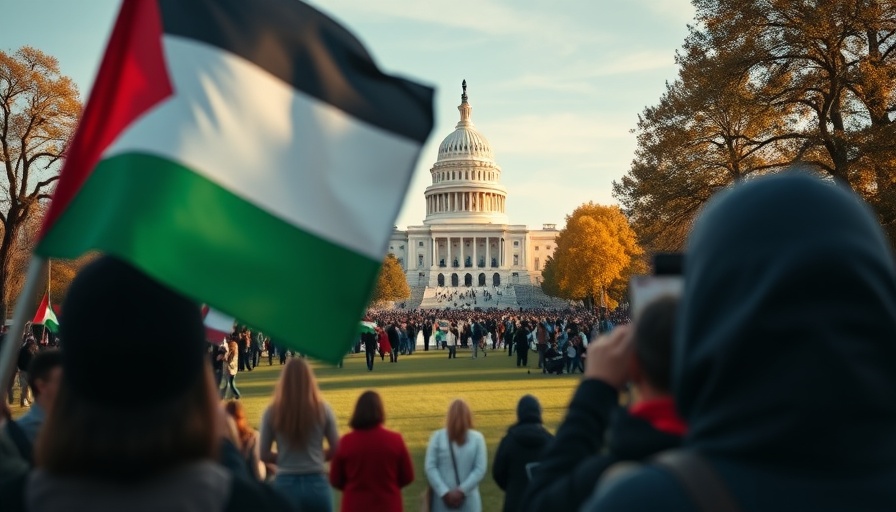
Trump's Reversal: An Unexpected Shift in Gaza Policy
Recently, President Donald Trump made headlines by altering his position on the controversial Gaza plan, asserting that "nobody is expelling any Palestinians." This new statement contrasts sharply with previous remarks, where he appeared to endorse the relocation of Gaza's Palestinian population, a move that had drawn heavy criticism and allegations of proposing forced displacement. This sudden policy shift raises questions about the implications for regional stability and humanitarian concerns.
Understanding the Context: Historical and Geopolitical Nuances
The backdrop of Trump’s Gaza remarks is a long history of conflict between Israelis and Palestinians, deeply rooted in events from the mid-20th century that led to the displacement of hundreds of thousands. The distressing conditions in Gaza—where over 1.8 million residents face dire humanitarian crises—underscore the sensitivity of Trump's assertions. Amid ongoing violence and a complex geopolitical landscape, Arab leaders, particularly from Egypt and Jordan, emphasize the need for a reconstruction approach that avoids displacing Palestinians, promoting instead rebuilding efforts that accommodate the existing population.
How Trump's Comments Might Amplify Tensions
Despite Trump's emphasis on a supposed goodwill toward Palestinians, his rhetoric could inadvertently normalize notions of displacement and raise fears of ethnic cleansing among the Palestinian community. Experts, including those from Human Rights Watch and Amnesty International, highlight that any attempt to forcibly relocate populations from Gaza would contravene international law, potentially qualifying as a war crime. This has drawn sharp rebuke from both political analysts and humanitarian groups, who stress that Palestinians possess deep-rooted ties to their lands and identities.
Contrasting Perspectives: Egypt's Plan for a Sustainable Future
While Trump envisions a "Riviera of the Middle East" through U.S. control over Gaza, Egypt is forging its reconstruction plan that prioritizes the Palestinian people's right to remain on their land. Cairo’s proposal includes establishing temporary housing solutions and rebuilding essential infrastructure while avoiding the expulsion of Palestinians. This stark contrast underscores a significant divergence in political strategies between the U.S. and Arab states and raises concerns about the future dynamics of power in the region.
Prospects for Peace: What Lies Ahead?
The future path for Gaza remains uncertain. Even as a ceasefire has been established, reports indicate that tensions are still high, with frequent violations and doubts about the longevity of current peace agreements. Trump's unpredictable approach complicates the already fragile situation, prompting fears of renewed conflict should his policies be viewed as antagonistic or dismissive of Palestinian concerns. Ultimately, the deepest yearning among Palestinians is for recognition of their narrative, identity, and a rightful place in peace discussions.
Conclusion: Awareness and Advocacy for Human Rights
The ongoing situation in Gaza highlights the desperate need for humanitarian awareness and advocacy for the rights of the Palestinian people. Understanding these complex dynamics is crucial for anyone invested in global peace and justice. Supporting efforts to reconstruct Gaza, while honoring its residents' rights to their land and memory, is imperative. It is vital to pay attention to the voices of those affected and to advocate for approaches grounded in respect and dignity.
 Add Row
Add Row  Add
Add 




Write A Comment